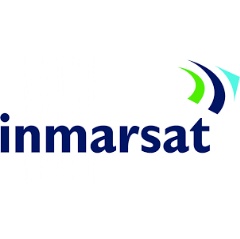New technology trialled to better monitor human-gorilla conflict in Uganda
WWF, IGCP and satellite communications leader Inmarsat collaborate to pilot cutting-edge data gathering solution to benefit conservation
Finding ways to improve how people and nature live alongside each other has been at the heart of a new project around the world-famous Bwindi Impenetrable National Park in Uganda in Central-Eastern Africa. Here, the Uganda Wildlife Authority (UWA) has launched a trial of an innovative technology solution to record incidents of human-wildlife conflict, with a view to allowing local communities, mountain gorillas and other wildlife to better coexist.
Although the sub-species was recently re-classified as endangered, as opposed to critically so, there are still only about 1,000 mountain gorillas surviving in protected parks, in the wild; around 600 are in the Virunga mountains, while around 400 are in Bwindi Impenetrable National Park.
Rural human populations in this part of the world are growing rapidly, at almost 3% per year, putting pressure on space and resources. The need to protect both the mountain gorilla and the livelihoods of local communities who rely on the land, presents many challenges, which can result in conflict; wildlife attacks on people, crops destroyed and disease transmission from humans to gorillas. To respond to these challenges, the International Gorilla Conservation Programme (IGCP), a coalition of WWF and Fauna & Flora International, has teamed up with Inmarsat, the world’s leading mobile satellite communications company, to pilot the use of a mobile-based technology solution that streamlines data-collection of incidences of human-wildlife conflict and provides the opportunity for real-time data transmission.
To date, monitoring of human-wildlife conflict, which is critical to managing it, has been a laborious paper and pen exercise, which wasn’t well suited to the needs of the HuGo (Human Gorilla Conflict Resolution) community groups who undertake the monitoring. This meant the consistency of data and the ability of this information to influence management decisions was limited. Simplifying and standardising information gathering using the solution enables community volunteers to use straightforward visual tools and their local language to record any incidents.
Connectivity in remote mountain gorilla habitats can be challenging but, by using Inmarsat’s mobile satellite devices, the data collected by HuGo groups can be transmitted via satellite in near real time. Key information is sent to UWA rangers and other HuGo members so that they can provide additional support if needed. The data is then stored on a central UWA server, where it is used to inform human-wildlife conflict mitigation work. Going forward, part of the pilot will be to enable automatic transfer of the data to the UWA server via satellite networks.
The technology is being trialled by local members of the HuGo (Human Gorilla Conflict Resolution) programme, which was established by UWA in response to escalating conflict related to attacks on crops and people by mountain gorillas and other wildlife.
Anna Behm Masozera, Director at IGCP said:
“Mountain gorilla conservation has had many successes in recent years and the pilot of the hand-held devices generously provided by Inmarsat has the potential to drive that forward by transforming data collection.
This is all about equipping and empowering local communities to be part of the solution and to make them feel valued by training them in, and supplying them with the latest technology.”
Cath Lawson, Regional Manager Africa, at WWF, said:
“Mountain gorilla habitats are surrounded by some of Africa’s highest densities of rural populations. Finding solutions that enable the coexistence of wildlife and local communities is the only way that conservation efforts can succeed.
The technology solutions we’re piloting in this project have the potential to transform data collection processes which enable better informed management decisions for both people and mountain gorillas.”
Paul Gudonis, President at Inmarsat Enterprise said:
“In our 40th anniversary year, this project reflects back to our founding principles of supporting safety and sustainability in the world. We are delighted to be working with the WWF, IGCP and Ugandan Government and community groups to decrease human-gorilla conflict in the region.
We are excited at the potential of using our BGAN satellite connectivity and our IoT expertise to deliver innovative new solutions to conservation projects throughout sub-Saharan Africa.”
( Press Release Image: https://photos.webwire.com/prmedia/6/242986/242986-1.png )
WebWireID242986
This news content was configured by WebWire editorial staff. Linking is permitted.
News Release Distribution and Press Release Distribution Services Provided by WebWire.
